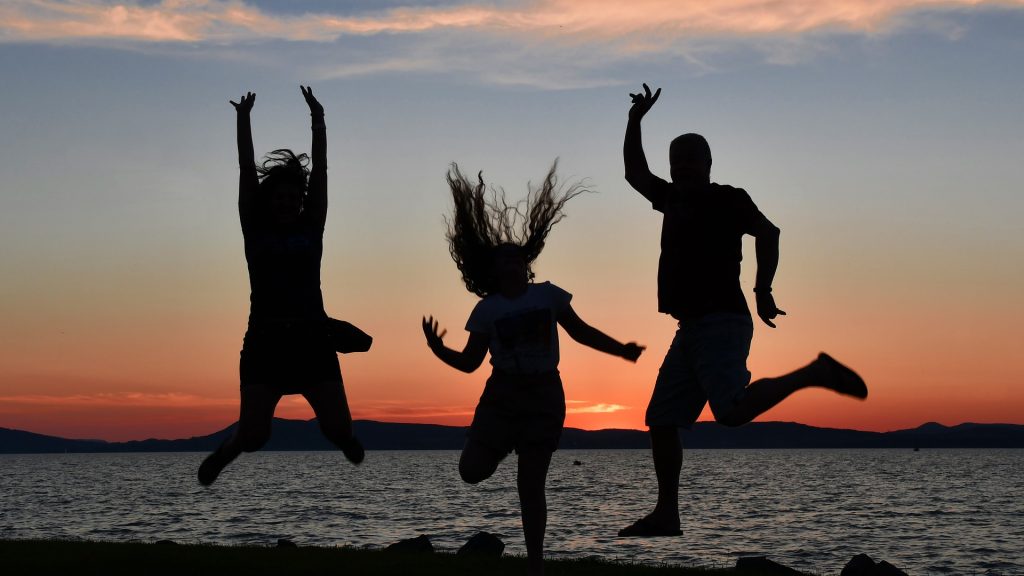Most drownings and tragic deaths could be prevented if those wishing to splash around in the summer months followed the minimum basic rules.
The Hungarian Professional Service of Lifeguards (VMSZ) draws attention to the dangers that can exist when staying in the water and on the water's edge, and how accidents can be avoided and prevented with proper care.
"Individual cooperation is extremely important, because if the rules are not followed, the amount spent on prevention is unnecessary"
- emphasized Sándor Bagyó, president of the VMSZ. There is no shortage of tragedies: last year in Siófok, a young man was pedaling with his girlfriend on Lake Balaton, but after slipping down the slide, he drowned in the deep water. An eighty-year-old woman also fell victim to the Hungarian sea. Not a season goes by without drowning, even though most of them can be prevented with proper precautions.
Although there is summer, freedom and recreation, we should not turn off our common sense peasants and send them on vacation, because it will end in a terrible tragedy
- said the head of the Hungarian Professional Service of the Water Rescuers. Human irresponsibility can mostly be behind the accident statistics, failure to follow the rules brings trouble. If we look at the number of tragedies on Lake Balaton in forty or fifty years, it shows a decreasing trend, the leader emphasized. Over the years, the number of deaths has dropped below ten on average, but there are some years when the figures are much sadder.
It's not about a tornado coming and taking away thirty people, it's about human irresponsibility that contributes to accidents.
The statistics do not show any accidents of the "there is no medicine for stupidity" type, so the lifeguards ask the locals and those coming to Lake Balaton to be cautious and cooperative.
The peculiarities of Lake Balaton
In the bed of the lake, a few hundred meters from the shore, there is a trench-like formation, the so-called milling line. This can also be a serious source of danger and cause trouble, especially on the south coast.
The rip line is not marked by a buoy, so beachgoers and athletes must be aware of the existence of this danger.
Even so, Lake Balaton is not a lake that hides any special risks, the places designated for swimming are safe, the storm alarms are working, but they must be taken into account, Sándor Bagyó pointed out. He also mentioned that all tools are at their disposal, so there can be no problem if they are prepared. The most important thing is consideration, thoughtful bathing.
Forget bathing at night!
It is safest for vacationers to bathe in designated bathing areas along open waters, the police previously pointed out. In these places, the specialists of the authority can carry out rescue and assistance the fastest. It is forbidden to bathe in waterways, in the areas of harbors and motor water sports transport tracks, and in the area of boat stations, but it is also not allowed to go into the water within 300 meters of barrages, bridges, water extraction works, other water ferries and ferry crossings within 100 meters.
Bathing is prohibited in waters that are harmful to health, as well as at night and in conditions of limited visibility, unless the water surface is illuminated, but even then you can only bathe up to the limit of the deep water.
A fine of HUF 150,000
There is a severe penalty for prohibited bathing. In the framework of fines for violation of regulations, those who bathe in prohibited places can be fined from HUF 5,000 to HUF 150,000. It is not clear to many, but every year the police informs the public that the use of swimming devices such as toy boats, pedal boats, banana boats and various inflatable water devices is considered bathing. Moreover, the use of swimming devices is only permitted if they do not endanger bathers.
The responsibility of the owners of the holiday homes
According to the authority, it is common for the owners of waterfront vacation homes, when they rent out their houses, to provide their guests with the use of watercraft as an additional service, and the guests most often rent or borrow SUPs, kayaks, canoes, boats, or even motorboats from the accommodation provider.
There are separate legal conditions for renting or lending recreational watercraft.
The lessor or lender is responsible for the technical condition of the watercraft and must obtain a written statement from the person who will use the craft. It must state that the user can swim, knows the rules of navigation and has received the rescue equipment necessary for the safe use of the watercraft.
Featured Image: Pixabay













